Poland Expat Guide: Pros & Cons of Living in Poland
Poland is also one of the easiest places to get European citizenship by descent, so it’s not surprising that many people are considering moving to Poland.
How do I know what I’m talking about? I think I have a unique perspective on the subject as I’m originally Polish, but I left years ago. That meant when I moved back to Poland for a few months here and there, I wasn’t registered for anything and was basically dealing with the same things expats and digital nomads have to deal with in Poland.
I also have a foreign husband and kids who don’t speak Polish, hung out with lots of expats from around the world in Poland, led groups of foreigners around and noticed the language issues, and had our first son in Poland on an expat experience (which wasn’t planned). If something isn’t covered in my post below, send me a message on my Insta or ask in the comment section below!
Is Poland Good for Expats?
Poland has some challenges for both expats and locals and does have a bit of a learning curve.
The relatively low cost of living compared to other European countries is attractive to many and Poland is even one of the top countries for investors. This isn’t surprising as many new companies enter the Polish market all the time, there’s even Amazon Polska now.
The median salary might be 4000 PLN, but if you live in Warsaw, Wroclaw, Gdansk or Krakow it’s not unusual for a 20-30-year-old to make 10-15,000 PLN, which gives you a pretty comfortable life.
It takes some adjusting… including simple things like finding the right public bathroom (men’s toilets are marked with a triangle, while women’s toilets are marked with a circle), taking your shoes off instantly when you enter someone’s house and being handled kapcie – compulsory guest slippers.
Or the fact Polish sandwiches called kanapki are made with just one slice of bread and served for breakfast, lunch, dinner, or anything you really want. Poles even eat Kaizer rolls in two open pieces, unless it’s for kids on the go.
One important thing to mention is the weather because people tend to believe Poland is overly cold. Winters tend to get colder than in other spots in Western Europe, but it’s still nothing to northern US winters.
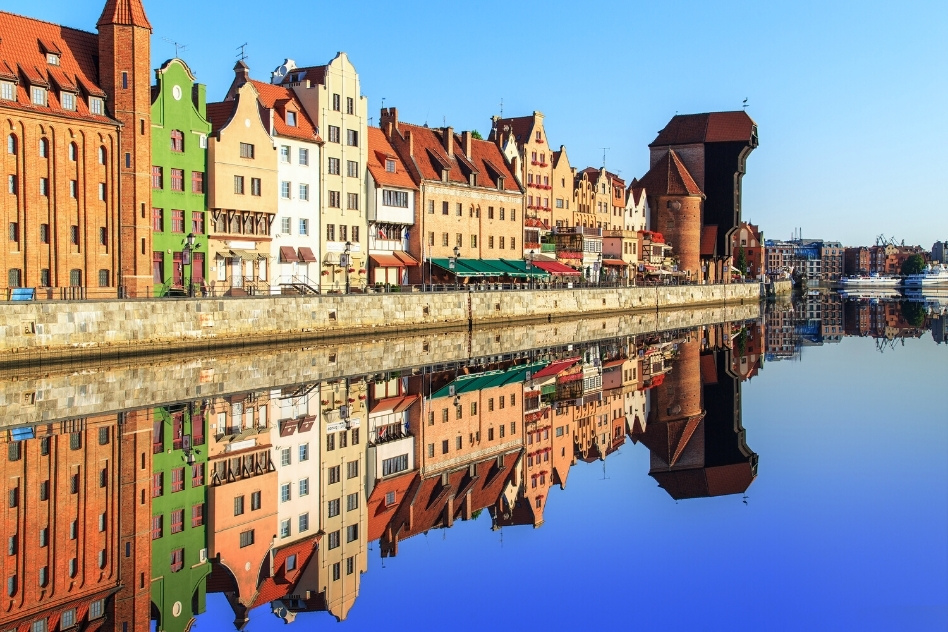
Do They Speak English in Poland?
English is fairly widely spoken in Poland and in bigger cities as just over a third of Poles overall reported as being able to speak English to some degree. But, this doesn’t you won’t encounter issues in public institutions, shops, or with some people.
I still remember a situation in which my friends were trying to buy cheese at the big supermarket in Warsaw, the barcode wouldn’t scan and they kept going back and forth with the lady who could only say “no cheese” trying to take it away, and my friends responding “why”. I watched this situation evolve for a bit, but in the end, someone came over and helped.
Nevertheless, the situation is improving as more and more companies enter Poland and more people need to speak English. With the influx of Ukrainians in Poland many things, even restaurant menus, are often trilingual in Polish, Ukrainian and English. Since many international companies entered the market you can get by in English in Warsaw, Krakow, Gdansk, or Wroclaw.
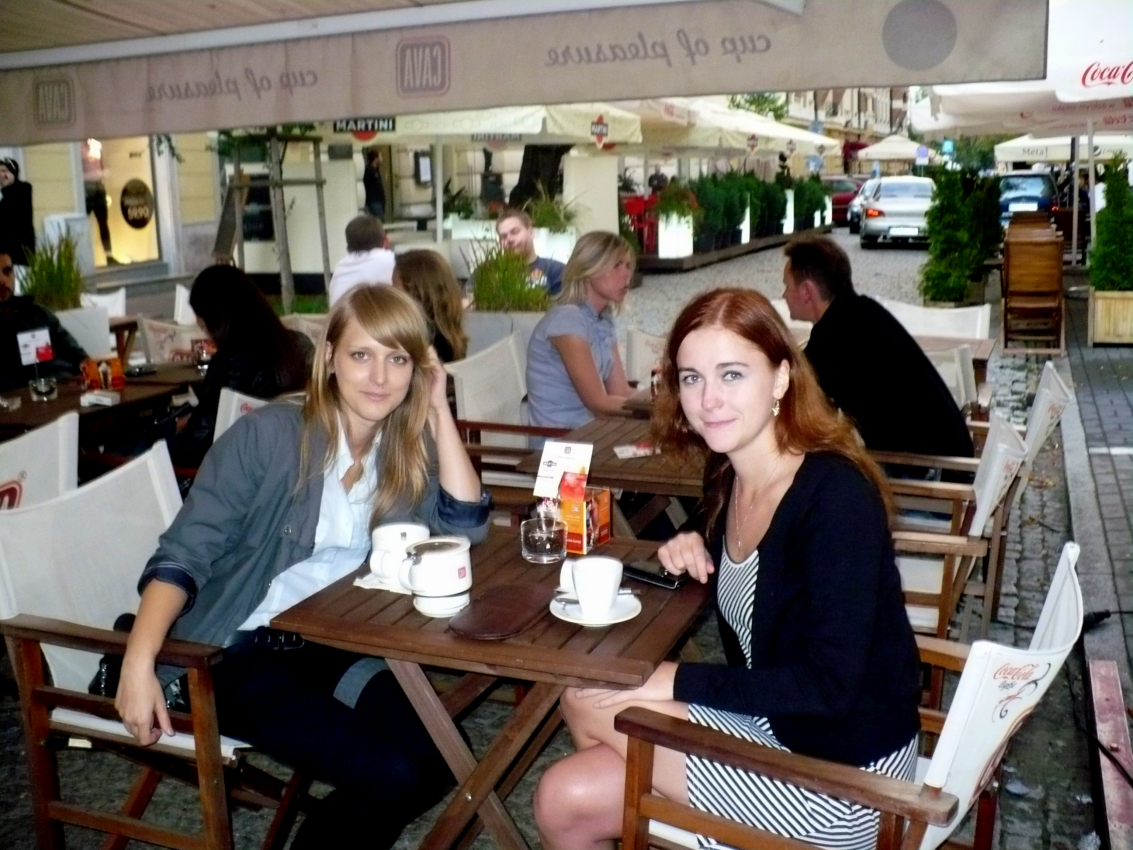
Moving to Poland: Is It Easy?
If you have a job offer, it’s easy to move and then sort everything out once you arrive. Salaries are low if you’re coming from a country like the US or UK, but the cost of living is lower and therefore the standard of living is much higher.
The main reason my friends moved back to Poland after living abroad and expat friends decided to stay in Poland was because they wouldn’t be able to afford the same standard in other countries. While it’s not an ideal place, it makes a lot of sense to live in Poland.
You need to arrange your Karta Pobytu as an expat. It’s basically like a residency. The process isn’t quick, because bureaucracy is slow in Poland but it’s not impossible.
My personal advice: if you’re moving to Poland because of your partner and planning on getting married, do it elsewhere. I investigated the process a lot and it was seriously easier to get married in Timbuktu and then establish it in Poland than get married to a foreigner in Poland.
Why? Unless your partner’s country can legally issue the certificate of statement of being unmarried, you need to petition the Supreme Court to exempt the foreigner from it (for example, the US doesn’t issue it). It’s a lengthy process that takes months or even up to a year. Then, you need a translator even if a foreigner speaks Polish and a bunch of other unnecessary arrangements that aren’t cheap.
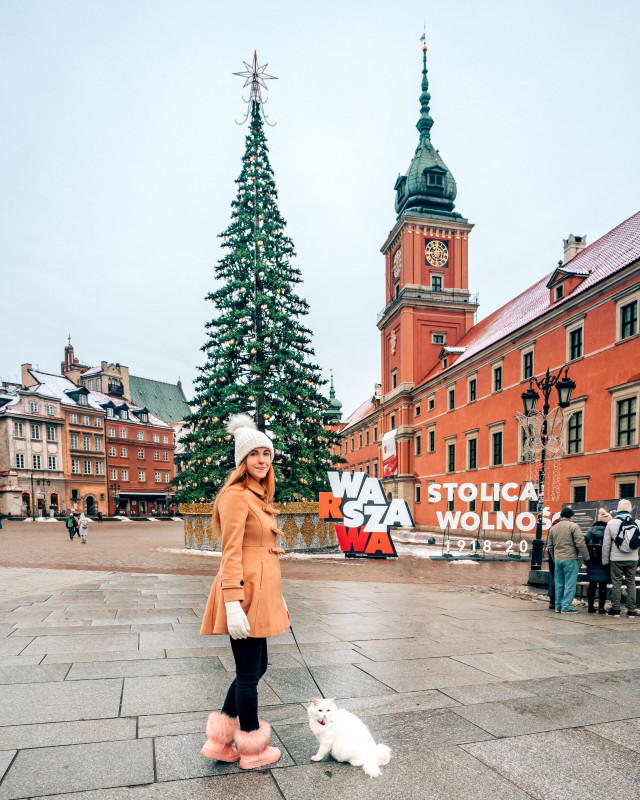
Cost of Living in Poland as an Expat
Unlike the majority of members in the European Union who adopted the Euro, Poland has the Polish zloty.
The cost of living in Poland is lower than in most places in Europe – as long as you don’t live in Warsaw. Accommodation cost is low, but also keep in mind that apartments are small.
Most Poles have used to very small apartments since the 80s, so it’s not unusual to see a family of 4 living in a 2-bedroom apartment 50m2. Bigger, American-sized apartments, are considered ultra-luxury and as a result very expensive – even more so if the place is located near an international school.
Groceries, going out to eat, and public transportation are relatively cheap. The downside is the high cost of gas, so that’s why public transportation is mostly used. Clothing and consumer electronics are the same prices as anywhere else in the EU which, if you compare to salaries, makes them pretty pricy.
Finding a Job in Poland
You can naturally scroll through LinkedIn, but the biggest job sites are pracuj.pl and also Goldenline (Polish version of Linkedin). If you see an international company you might as well reach out directly or see their job offers.
Many expats living in Poland tend to work as:
- Automotive manufacturing
- Food manufacturing
- Banking & Finance
- IT
- Construction
- English teacher
Advantages of Moving to Poland
Apart from the low cost of living, there are other advantages of moving and living in Poland.
Greenery
I never see it mentioned by any expats or locals, but Poland is very green. The country has plenty of green spaces even in cities – big parks everywhere, lots of trees, and random flower gardens.
I never noticed it until I lived in other places around the world. What in Italy people would call a park in Poland that would be a piece of grass in comparison to Poland. It’s nothing like American suburbia with lots of houses without any nature around it.
Around the country, you’ll also have forests, lakes, mountains, and seaside… all within a few hour’s drive or train ride. There are so many great places in Poland to see while you’re here!
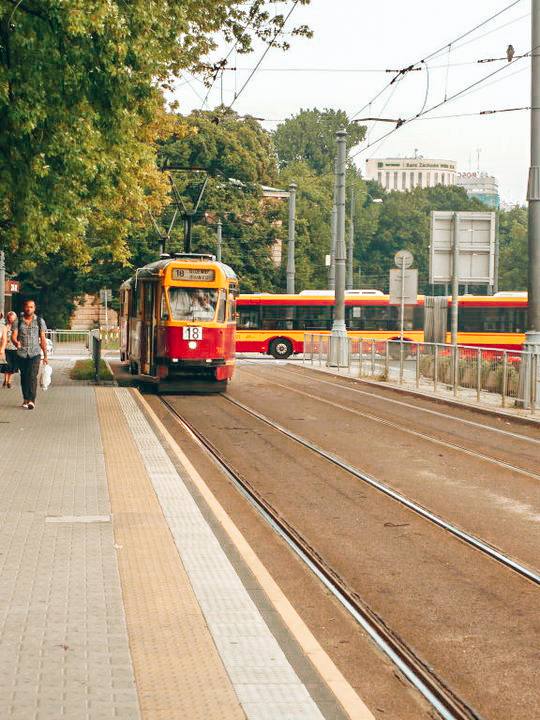
Healthcare
Healthcare is an advantage. While Poles like to complain about it, because public hospitals aren’t fancy and wait times are long, doctors and nurses are well-educated and knowledgeable.
The service is incomparably better than Italy, France, or the Netherlands and you always have the option to do everything completely privately. I decided to give birth privately since I had no public insurance in Poland at the time and it was incredible. Comparable with other places it was also cheap!
The most popular private chains of medical services are Medicover, Enel Med, and Lux Med. All these places offer their own private insurance.
One issue with the doctors is that while they’re good, they can be very direct and people can get offended.
Free education system
If you’re willing to send your kids to a public school or kindergarten, it’s free for expats as well. In fact, college is free for residents as well (I even got paid to study, because you can get a scholarship for good grades).
If you want an English-speaking school you’ll be looking at private ones. In Warsaw international schools are crazy expensive (because corporations pay these high tuitions, not actual people), but outside of Warsaw in cities like Gdansk where there are many international jobs and expats, English-speaking schools are very affordable.
Keep in mind that Poland has a very strict school system (similar to the German system) and the same applies to universities because you don’t have elective subjects. When kids move from Poland to the US in even late-primary school they usually skip about 2-3 grades or pass SATs straight out of middle school.
Compared to Poland, I found the university in the UK a bit of a joke, because it seemed like I was back in high school learning about the basics again.
Good travel hub
Bigger cities can be a great hub to travel all around Europe, as you can find a lot of cheap flights. Ryanair, EasyJet and WizzAir carriers fly from multiple airports in Poland.
Another plus is that thanks to the developed public transportation system you don’t need a car at all if you live in cities. With trains, buses, trams, and metro, you can easily travel around the country and visit some of the cool spots.
Poles love Foreigners
Poles might complain that you don’t speak Polish and ignore you a bit at first, but then they’ll get fascinated with you. Polish people tend to love foreigners… although unfortunately mainly as long as they’re white, straight, and not Muslim (more on that in disadvantages below).

Long maternity leave
One thing I’m sure jealous of my friends working regular jobs is maternity leave. It’s not unusual to see women who haven’t been back at work for years. While getting paid. How is it possible?
First, you can take a statutory 20 weeks of maternity leave (or 31 if you have twins). After that, you can get a parenting leave of 31 weeks. Usually, you get paid 100% for maternity and 60-80% for parenting, so overall you get 80% of your pay.
During this time you also accumulate a standard holiday of 30 days a year, plus bank holidays, so about 45 days roll over for the next year. It’s also very common to get so-called L4 which is a leave during pregnancy.
Since maternity and sick leave is paid by the taxes and not the employer, once the company finds a replacement they don’t want to pay for two employees and tell you to ask your doctor to start leave early. Most of my friends were done working at 16-20 weeks.
Basically, if you have two kids around 2-3 years apart, you won’t be working for a few years.

Disadvantages of Living in Poland as an Expat
Politics
Politics, politics, politics. Bureaucracy is still pretty communist-style, so it’s hard for expats to get through a lot of red tape to get residency in order and really anything else.
Even getting a passport for a Polish baby born abroad is a mission and requires a lot of paperwork – it’s seriously the hardest one I’ve ever had to do and my kids have multiple passports, so I have something to compare it to.
Religion is important
Conservatism combined with the Catholic faith not being separated from the state is alive and present in Poland. While many younger Poles say they’re very liberal, the country has a long way to go.
You probably heard about various protests due to violations of women’s rights and anti-abortion legislation. It’s due to the church’s presence.
Church clashes happen regularly. Some Poles might tell you “but we’re not that religious” but a majority still underlines the importance of going to churches on special events like Christmas or Easter, and everyone storms the cemeteries on All Saints Day “because it’s a tradition”.
Religion as a subject is also taught in schools weekly. It teaches kids about the Bible, all the prayers by heart, and so on. You can however, switch your kids to Ethics which is supposed to be more philosophical.
The upside to this is the number of public holidays you get, because religion celebrations are included.
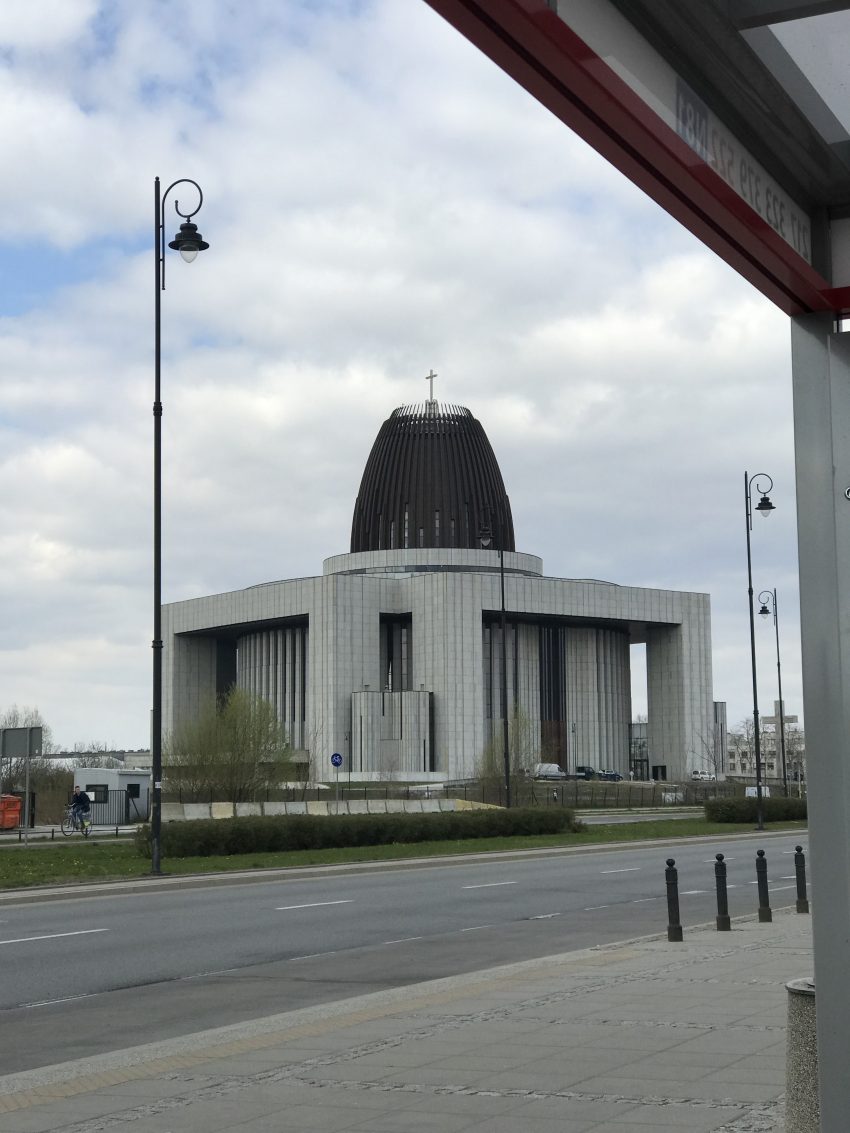
Intolerance combined with historical background
From a sociological standpoint, Poland has a very long history of facing national disasters like WWII, conquest by enemy superpowers, the Holocaust, etc., so people are very scared to let others in.
Let’s be real: I still remember my own grandma was worried about crossing the Vistula River because if “Russians come they destroy bridges and you won’t be able to come back” and my parents were freaking out not to give any information on the phone because “someone must be listening”.
Let’s not forget that Poland still had food ration cards, just like those in Cuba, when I was a toddler and my mom was driving me to school with a Fiat 126p that Americans think is so “cool” when they see them in Cuba. They weren’t, trust me. Poland has come a long way to achieve everything it achieved as a country over the past 25 years.
The ruling party is so popular because they want to keep “Poland for Poles” and defend the old ways, so they’re very against liberalism and a lot of people support these ideas. Now, before you freak out – not all these ideas are bad because things are never black and white.
I think what’s incredible in Poland is that the majority of people are very hospitable and love any excuse to welcome a new person into their home for dinner. You instantly become an aunt or uncle (ciocia & wujek) to all the kids once you come over to the house twice, even if you’re not related.
That said, Poland isn’t the friendliest place for LGBTQ people in smaller towns. This is a serious issue in Poland that has recently been under scrutiny by the European community along with women’s rights. While in Warsaw you might be fine most of the time, many places have a long way to go – they even declared “LGBT-free zones”.
Poland is surely a very white place in terms of race. There were endless campaigns about not allowing immigrants as well. While Vietnamese immigrants are well-known as they came to Poland years ago (hence why there are a lot of Europeanized Vietnamese take-out spots (that have very little to do with actual food in Vietnam), let’s just say that if you’re black you will get a reaction.
Even though there are tourists and expats of different races in big cities these days, when someone who looks different is around, everyone seems to notice and give them a side look. Half curious, half “what are you doing here” kind of look, and my black friends who visited Poland all agreed they were given a lot of attention.
I also realized recently while talking with Europeans next to my American friends is that many European people, Polish people included, don’t understand the American standpoint, in particular, making a huge deal about “white privilege” and racism. If you’re American, it might come off as a shock because it’s much more defined and talked about in the US as it comes from US history. But it seems hard to understand for Europeans, so when you chat with them about it, my advice would be to feel the room before expressing strong opinions on those topics.

Hard to buy a home
It’s hard to buy a home, especially as a foreigner. The Polish mortgage system is quite difficult to understand and it’s not easy to get a mortgage even for those born and raised in Poland. Even if you have a job, many banks will refuse you if you’re not earning PLN, or will give you only a small loan.
That’s on top of something that not many people realize – you need permission from the government to buy a house in Poland as a foreigner.
Language barriers
The language barrier is a problem because Polish is a tough language to learn. You won’t achieve anything in any Polish institutions if you try to speak English. Trust me, we tried 😉
This slightly applies to making friends too, it might not be easy to blend it properly if you don’t speak the language (although it’s the same in every country, in the Netherlands it was actually harder).
In Poland, friends are usually split into three categories: znajomy, kolega or przyjaciel. The first is an acquaintance, the second is someone you know better, and the third is a true long-term friend. It takes time to become the latter, but don’t give up.

Drinking
It’s not a secret that Poles like to drink and many foreigners can’t handle it (maybe apart from Irish). If you attend a Polish wedding, people drink a shot of vodka or liquor before every dance. It takes getting used to.
However, don’t get the wrong idea – Polish people are very hospitable and cherish traditional values when it comes to the family.
Overall, no country is perfect and I think it’s important to mention all the issues, even if they don’t concern you. Poland can be a good place to live with good access to healthcare, long holidays, and cheap costs of living.

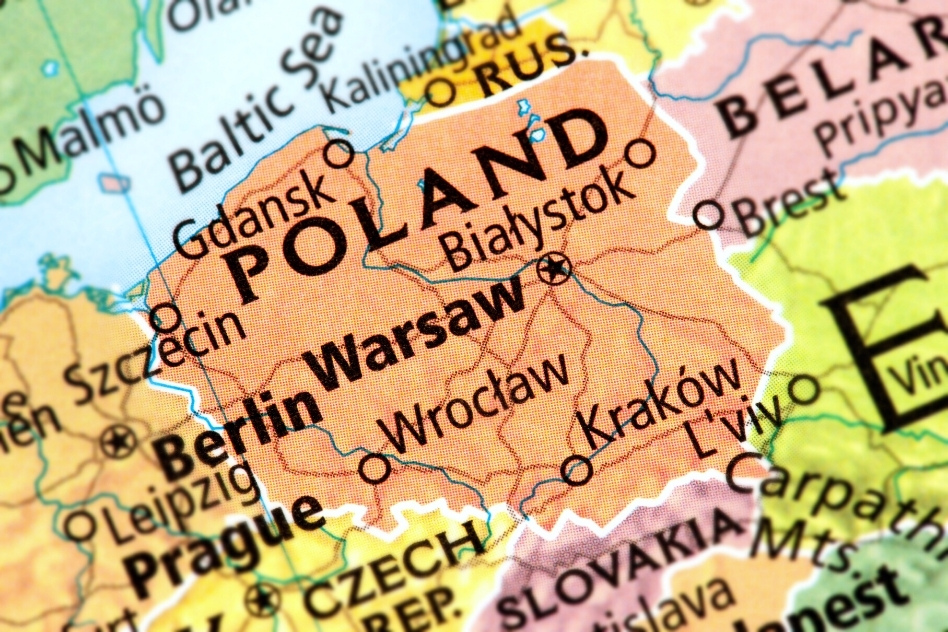
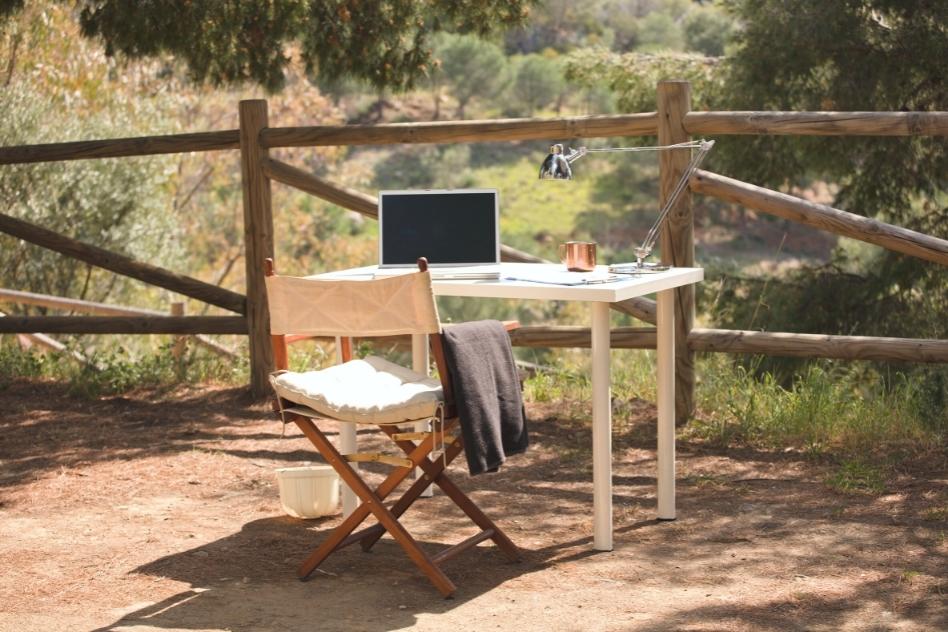

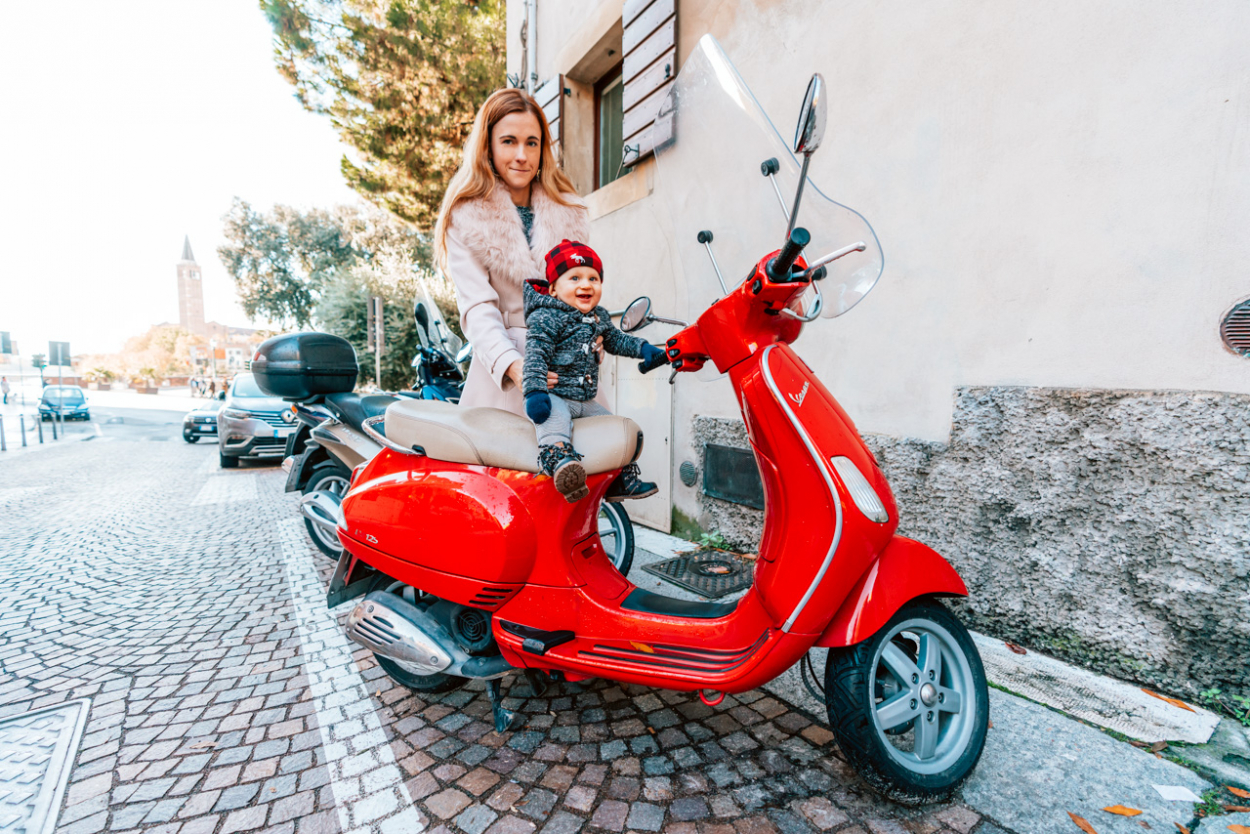
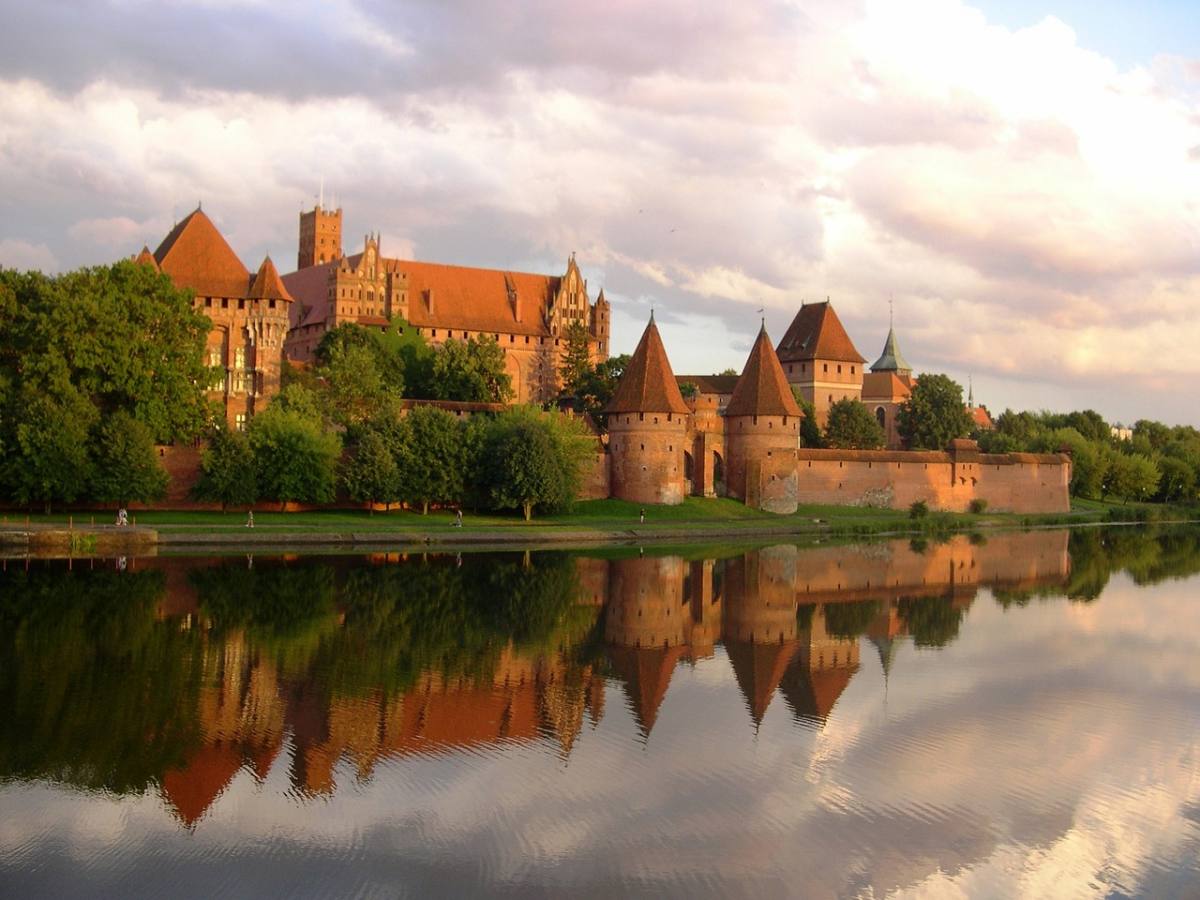
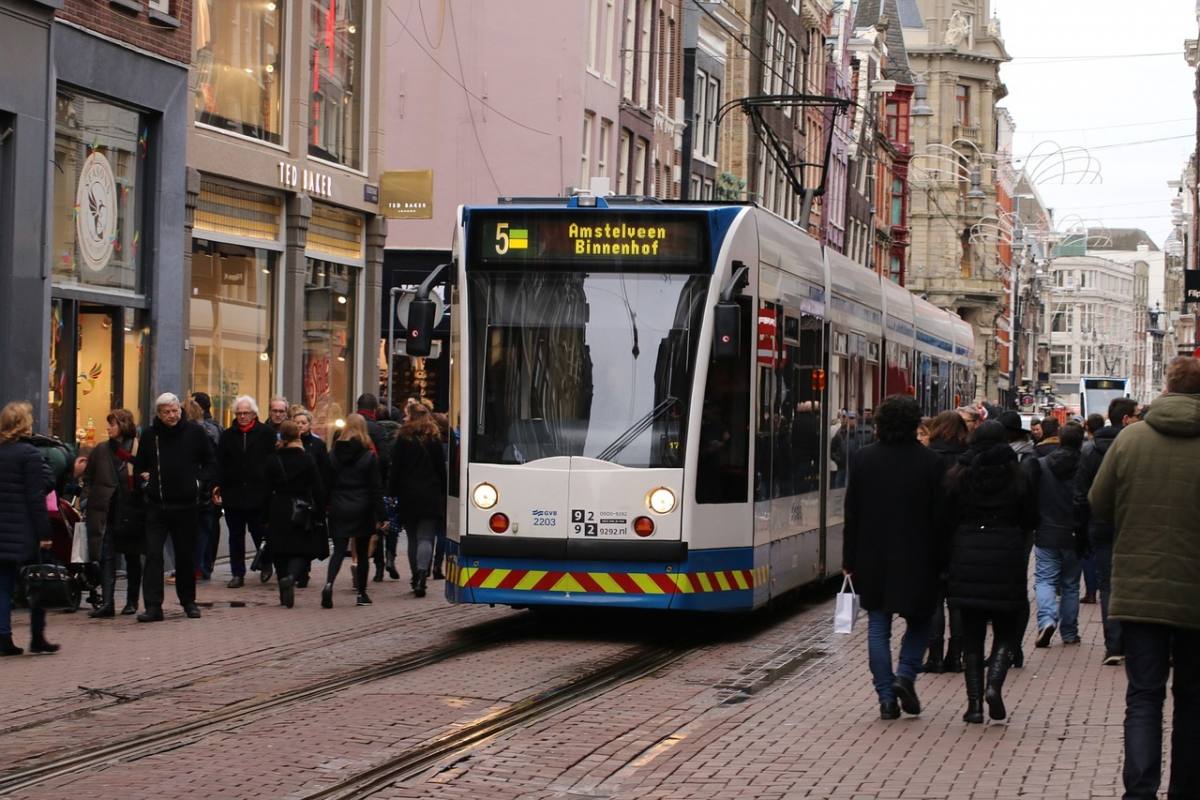

Very interesting text.
Not all readers are liberal or non-religious!
Is there any reasonable pathway to acquiring Polish citizenship now if one was born to two Polish parents who had Polish passports at the time of one’s birth but did not apply for the child’s citizenship at the time, and two years later the parents became naturalized U.S. citizens (this was during and right after WWII)-??
US naturalization doesn’t matter as Poland allows multiple nationalities.
You can surely get citizenship as you’re basically Polish according to the law, but you’d need to prove that your parents are Polish. You need to call the consulate.
@Anna Karsten, @Anna Karsten, Thanks for your response! I forgot to say clearly that I was actually born in the U.S. (though it was while my parents were still Polish citizens). I guess calling the consulate would help. It hadn’t occurred to me before that Poland would even consider me to be Polish since I was born in America!
It doesn’t matter where were you born, because Poland doesn’t do jus soli – it’s actually mostly a US thing and a few other countries, 90% of countries just take citizenship of the parents into considering when it comes to citizenship of the children. What counts is what citizenship your parents have (jus sanguini) and Polish consulates actually tells you that if your parents or just one parent are Polish the kids are Polish citizens already but it’s just a matter of sorting the paperwork. I was told that about my child, as I still need to get the paperwork done to get his official Polish citizenship paperwork done 😉
@Musica, in Polish consula you have to prove that your parents were Polish and show them all the documents that may prove that – this may conclude even bills if you have some. If it’s your parents’ documents you may have to prove that you’re a family also. And what is important is that you have to give them Polish adress to communicate. It may include showing personally at some time but I don’t remember it that well, I know that because of helping somebody related to Jews that lived in Poland before WWII.
America is very weird country and a lot of rules that you have don’t apply elsewhere.
There is nothing Poland needs to apologize for in maintaining its culture, religious observances and being caucasian. This is who they are, and I admire them for seeing the value of cultural integrity. Western Europe is collapsing from within for abandoning their identities and traditional cultural values. If not for Poland, Ukraine, Hungary, Bulgaria and Romania, Europe would become a distant memory.
@Philip, bro u need to calm down with the racism. Theres a reason why ur an old man. Every polish youth disagrees with you and the only reason the government stays that way is because of Soviet influence on the education system and antisemitism. Go back to Nazi land bro
@Alexander, calm down with the liberalism bro. Not all polish youth agree with importing the third world. That’s not a Polish problem like in Western Europe.
@Alexander, Phillip is absolutely correct here. Maybe you should look inwards about way you are so angry about a people living the way they want to
@Alexander, ansolutely..
@Alexander, stop the cap, I am a Pole, born and raised here. Not all polish youth is liberal, to be honest most of polish youth is very conservative and proud of it. We value our tradiition, our country and our faith. We have nothing to be sorry for. Its not racism to be proud of being white catholic. I have 14 year old daughter, you can say many thibgs about her but certainly that she is liberal and not proud of being native slavic catholic. So again, stop the cap and dont spread misinformation, most of polish youth iis conservative traditionalists, ofc there are liberal teens here but they are minority.
We are interested in retiring to Poland but would like to calculate the tax burden. Can you reference any sites or actual accountants who can help out?
Thanks
There are lots of sources, but they’re all in Polish and the laws are confusing even for native Poles, to be honest. Right now the situation in Poland is pretty terrible for retirees taking money from abroad because it’s high taxes with zero benefits. I wish I knew someone who is specializing in it, but I’m afraid I don’t.
Thanks a lot for the vital information on Poland lifestyle. I really appreciate your efforts.
Stay blessed.
Shuaib
This is very informative. Thank you.
Some of the things you think are bad are what make it such a great place, focus on faith, family and values is what the world needs more of not less
@Andrea Nigeal, Absolutely. I didn’t really see many negatives other than the bureauocracy
@Andrea Nigeal,
I think she was highlighting the potential for and actual intolerance of the people, especially around LGBTQ people.
Hi Anna,
Thanks for the information. I’m an expat considering a job in Poznan. Have you ever lived there? And how would you compare it to Warsaw?
I personally haven’t, but a lot of my friends from college moved there after graduation. It’s a beautiful city, naturally smaller than Warsaw but as a result much cheaper and you can still pop in to Warsaw or even Berlin quickly on a train.
@Anna Karsten,
Hi Anna, my mother is Polish although born in England, while my father is both Polish and Russian while born in the USA. Would it be next to impossible for my wife and I (myself being born in the USA while my wife was born in Mexico), to gain permanent residency in Poland as we’re both retired and would love to relocate there?
I assume both of your parents were Polish citizens at the time of your birth? Your parents should have applied for Polish citizenship before you turned 18 basically, as then you’d automatically be issued one. Because they didn’t do it, you sort of “lost” your Polish citizenship so now you can apply for Polish citizenship, but it’s not so easy – I suggest you contact an immigration specialist lawyer because there are various ways to do so but it will require a lot of patience and paperwork (and knowing Polish bureaucracy it’s very frustrating to deal with it alone, unless you speak Polish). Your wife would basically have to be sponsored by you as a spouse later in the process.
@Chris,
Hello again Anna, no, my parents do not have Polish citizenship, but my grandparents did. They fled Poland during the war, relocated to Austria for a short time, and then to England, where my mother was born. My father was born in the USA, with one Russian parent, and one Polish parent. My wife and I took a long trip out to Poland a few years ago and pretty much scaled the country – we loved it, thus my inquiry of the possibility relocating there. We aren’t looking for Polish citizenship, just permanent residency status. I’m assuming that are prospects may look bleak at this point? …
@Chris,
And not to rule out that we wouldn’t want to apply for citizenship and become citizens, but some of the people that we spoke to while there basically told us that it would be very difficult to do so, thus why I was thinking that permanent residency status might be a bit easier to obtain.
All right, so it’s technically possible actually. What you need to do is to have some sort of documentation of your grandparents that they were Polish. It can be a birth certificate, baptismal certificate, marriage certificate, or anything that says they were Polish. The next step would be proving that you have some sort of connection to Poland – it can be a membership to a Polish club, trying a Polish language class, or proof of visiting – the more the easier it makes. Then you need to request residency IN POLAND at Department for Foreigners of Urzad Wojewodzki (in a city where you want to be), along with these documents I mentioned, while your tourist visa is still valid.
The processing of these documents might take time, because it’s Polish bureaucracy, but your stay will be legal until the decision is made. Once the application is approved you can apply for something called Karta Polaka which will be an residency card. Then, after a year you can apply for naturalization. The only thing I don’t know and honestly can’t find any info about is how will the process look like for your partner.
Here is a link with more info: https://www.migrant.info.pl/how-to-obtain-polish-citizenship.html
Hi there!
I love this write up as I am going to be visiting Poland soon and found it a wealth of useful information.
As a traveling Black American woman, I’d certainly not like to be anywhere where I am unwelcome by the general population. However, let’s face it. There are plenty of places that have issues with foreigners-including my own country.
As long as we respect each other’s rights (and space) I don’t mind anyone staring at me. After all, I am rather hard to miss 😊
Thank you for writing your observations and I wish you and the family lots of love, happiness and success!
@Anna Karsten
Please can you say something about African immigrants in Poland. How is it for Africans to migrate and settle quickly in Poland. I am planning to move to Poland from UAE but I don’t know much about Jobs availability for Blacks in Poland. Thank you
@Klint, your job opportunities are the same as everyone elses. It really doesnt matter what race you are, you just need to be good at your job and know what you are doing. Jobs in Poland are about profesionalism and not about race. Outside of work ofc you will get looks and some stares on the street if you are not white but its because different reason than racism, you see Poland is 98% white so we are just curious about other people from other parts of the world. For an example when i see asians, blacks etc on the street a look at them not because im racist but because im curious where are they from, what motivated them to move here etc, its pure curiosity and not racism and often that curiosity leads to us Poles to come over to you and start a conversation about you, your country, your experience in Poland and so on, and possibly making new friends.
If you were born in USA to parents who were Polish you can get Polish citizen.
Poland hoes by blood line, USA goes by territory birth (if you are born on USA territory you become USA citizen). In Poland if you are born to one parent who a Polish citizen, you are a Pole.
I have done it myself. Process is very easy but takes time. USA consulate will charge you more. Do it in Poland. Obtain from Warsaw USA ambasady prove of your birth in USA.
I put papers at local city urząd Wojewódzki do spraw obywatelskich. I had to translate (tłumacz przysięgły – sworned translator) birth certificate and wait. Regional office urząd Wojewódzki do spraw obywatelskich came to place later on. They will put your American birth certificate translated to Polish into the system, you will receive PESEL number, and with Polish copy of your birth certificate from the urząd you can apply for your Polish passport.
It can take up to 6 months for all this to go through. Most important you will need your parent Polish birth certificate. You can pull it out from urząd in Poland. And your American birth certificate from USA translated, and confirmed by American embassy in Warsaw. The urząd will confirm it.
It took much faster for my child.
Now, since you were born in USA Poland will ignore it, as they go by blood law. BUT!!! if you were naturalized in USA and want Polish citizenship after that I was told you can’t, because you made decision to be that country’s citizen. If that stands still.
Lastly, Poland allows dual citizenship, however if you work for USA government with highest security clearance, Poland will withdraw your citizenship automatically as you can’t “serve” both countries as their citizens. I asked that question because of a concern. Again that would have to be CIA lever job.
Now if you reside in USA you are not subject to Polish military draws as a man, even if you are of age.
Concluding, main thing is to have one of your parents ORIGINAL birth certificate copy. That is your starting point. My case took less than 6 months. My friend, Polish, married to an American did her child’s Polish citizenship and it took them 6 months. They applied in Poland, waited while pretty much back to the USA after their wedding.
Once the child got approved, the PESEL was automatically issued (like social security number in the USA), and they applied for the child’s passport. This you can do even through Polish consulate in USA, it is not that much expensive. But doing Polish citizenship through USA consulate is though, and takes much longer! Do it direct way.
All this is for your American birth certificate to be put into Polish system and printed as “Polish” citizen. With that you get PESEL. And having both, you send them to Polish consulate in USA and you get your Polish passport.
You have very straight path, easy to do, because one of you parents (better yet, even both!) We’re born in Poland, or had Polish citizenship.
Remember Poland goes by blood line law, not territory law where you were born, but to who you were born, even if you’d be born on the moon to a Polish mom, or a foreign mom but Polish dad. Isn’t that cool! :)))
My dad lives in Poland and I live in USA. What is the easiest and cheapest way to send him money? I have tried Moneygram but it is not allowing me to send money from my American bank to his bank Alior.
@Waldek, best way is diirect bank to bank transfer from your account to your fathers account. Its the cheapest way than tranfers by third party apps and institutions or you can always use western union which operates both in Poland and in the US. I have family in the US and money transfer was neven an issue.
A very interesting article though I strongly disagree with the information pertaining to Polish healthcare system. It’s actually in a very bad condition. Many hospitals haven’t been renovated for years, the staff is very rude because they work for a meagre salary. Many patients die at the emergency rooms like my brother due to negligence. The Polish law concerning healthcare has its flaws too because it hasn’t changed much since the communist era.. While there’s a wide range of private clinics like Luxmed, they don’t have private hospitals and you end up in horrible public hospitals where you put your life at risk. In some ways, Poland is still a communist country where your individual rights are ignored not to mention the human rights which are widely disrespected in this country.
Thank you so much for breaking down all the important points to us, stay blessed.
it’s ok to live here. very safe even if you are gay. but lgbt has no rights at all. it’s complicated because most ppl accept you but also most ppl dont want new rights for you. strange but it’s true. also if you are rich e.g. you work as IT programmer you can live here freely but you have to remeber that winter is for 6 months, 1,5 month is cold spring, 1,5 month is cold autumn and there are only 3 warm months of summer
Anna:
Very useful information. Two questions:
If parents were born in Poland, relocated to US after the war and became US citizens, would a US born child be eligible for Polish citizenship by descent?
Separately, regarding posts on safety for different groups, in view of reports of Covid re-surfacing, can you describe how Poland handled the Pandemic? What was the incidence of Covid deaths/injuries in Poland and could people get the treatments they needed? Were vaccine or mask mandates and lockdowns imposed? Travel or other work/shopping restrictions? Since different countries (and cities) handled things differently, how would you say Poland handled the pandemic overall in terms of balancing public health with individual liberties and how was this received by the population in a traditional country?
If at least one parent still had a Polish citizenship when the child was born, then yes. However, procedures are different for children under 18 and those over 18.
In terms of handling the pandemic most people will tell you that Poland handled it badly, but these are the sentiments in most places as there were multiple inconsistencies everywhere regarding rules, lockdowns and so on. Overall, yes there were lockdowns and mask mandate was enforced even outside. Hospitals were overcrowded, but let’s be real: they are often overcrowded even without covid.
Religion should not be listed as a downside, come on. Truly religious people will display hospitality, help you in need, will make pro life choices of keeping their babies and caring for the elderly. Besides, some expats want to come to Poland to find a vibrant religious community.
I have been going to Poland 2x per way since 2009 .. I never had the experiences you described as a Black foreigner. Not In Katowice, Poznan, Wroclaw.. Kicin or any other place My apartment was not small, never went any place to buy groceries where the cashiers could only say “no cheese.” Met many gay people.. Nver saw the LGBT free zones and observed my friend get married with the same red tape in the US.. Saw a couple buy a house and land in Kicin and Zakopane with the same issues with a mortgage in the USA. My nephew, born in Poland came to the USA as a 6th grader.. and he Did NOT skip 2 grade or remotely prepared to take a SAT test…His grades were excellent in Poland but he knew NO HISTORY or Science. I met so many Poles married to African or had kid by an I am surprised that they were not disowned by their parents. but se la vie!
hi there. is there any private business that helps people find apartments or assisted living? My mother in law is Polish born. married an American, and has dual citizenship. Husband died years ago. she wants to go home and live her remaining years in Poland. Im coming up empty when searching for “retirement homes Krakow” and other variations.
Retirement homes in a way they exist in the US aren’t really a thing in Poland. People don’t really go live in them until they’re truly sick and at risk. You can find a few here: https://www.domyseniora.pl/krakow,prywatne_domy_opieki.html
@Conradt, As Anna said, retirement homes or assisted living dont exist here in Poland. WHen the time comes and our parents are old then we take them to our homes or we move to their homes and help them. The reason why it is that way is because most of us Poles live in multigenerational family homes, meaning you your parents and your kids live in one home, we value very much our family traditions and values and sending a parent to a retirement home is considered by us as something extremely insulting and cruel. Here even considering sending parents to a retiirement home is a thing which most likely will lead to loosing all respect from work collegues, friends and family, people will simply turn away from you if you start talking about sending parents to a retirement home. For an example, im 41, i live with my mother and my daughter under one roof and its a beautiful tradition which strenghtens the family bonds. We Poles are very famiily oriented catholic traditionalists and proud of it.
Hi Anna,
Very informative Thankyou.
We are looking to move to Poland next year. My wife (9 years married) is Polish and kids are Polish also (1 daughter 18+ would be moving back with us)..
We are in a lucky situation that upon sellingvour house in UK we could afford to buy in Poland without a mortgage.
My job is generally remote working to a uk company and i hope to keep this going with a vosit back to the uk every 3 weeks.
Does this seem realistic and what adcise would you give?
Absolutely realistic. You would have to file taxes in Poland as it would be your prime residency place, but that’s not an issue since you won’t be double taxed.